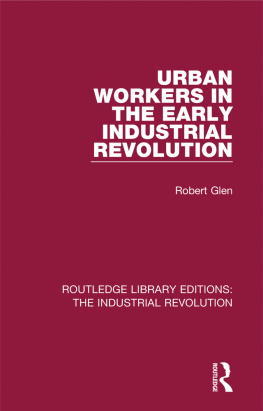[ Advertisements ] Table of Contents
|
|---|
ENGLISH ORGAN of the INDUSTRIAL WORKERS of the WORLD OLIDARITY presents a weekly review of the activity of labor the world over. Accounts from all the important strike centers by the workers engaged, News of all the labor cases on trial. Sparkling editorial comment on current industrial events. Discussion of form, aim and tactics of revolutionary industrial unionism. Clever Cartoons.
A WEEKLY
LABOR NEWS PAPER
Six Months 75c. Foreign $2.00 I. W. W. PUBLISHING BUREAU
1001 W. Madison St.CHICAGO, ILLINOIS |
|
|
SABOTAGE
The Conscious Withdrawal of
The Workers' Industrial
Efficiency
Table of Contents
ELIZABETH GURLEY FLYNN
Table of Contents
Ten Cents
CHICAGO, ILL.
I. W. W. PUBLISHING BUREAU
1001 W. MADISON ST.
|
SABOTAGE
Table of Contents
The Interest in sabotage in the United States has developed lately on account of the case of Frederic Sumner Boyd in the state of New-Jersey, as an aftermath of the Paterson strike . Before his arrest and conviction for advocating sabotage, little or nothing was known of this particular form of labor tactic in the United States. Now there has developed a two-fold necessity to advocate it: not only to explain what it means to the worker in his fight for better conditions, but also to justify our fellow-worker Boyd in everything that he said. So I am desirous primarily to explain sabotage, to explain it in this two-fold significance, first as to its utility and second as to its legality.
Its Necessity In the Class War.
Table of Contents
I am not going to attempt to justify sabotage on any moral ground. If the workers consider that sabotage is necessary, that in itself makes sabotage moral. Its necessity is its excuse for existence. And for us to discuss the morality of sabotage would be as absurd as to discuss the morality of the strike or the morality of the class struggle itself. In order to understand sabotage or to accept it at all it is necessary to accept the concept of class struggle. If you believe that between the workers on the one side and their employers on the other there is peace, there is harmony such as exists between brothers, and that consequently whatever strikes and lockouts occur are simply family squabbles; if you believe that a point can be reached whereby the employer can get enough and the worker can get enough, a point of amicable adjustment of industrial warfare and economic distribution, then there is no justification and no explanation of sabotage intelligible to you. Sabotage is one weapon in the arsenal of labor to fight its side of the class struggle. Labor realizes, as it becomes more intelligent, that it must have power in order to accomplish anything; that neither appeals for sympathy nor abstract rights will make for better conditions. For instance, take an industrial establishment such as a silk mill where men and women and little children work ten hours a day for an average wage of between six and seven dollars a week. Could any one of them, or a committee representing the whole, hope to induce the employer to give better conditions by appealing to his sympathy, by telling him of the misery, the hardship and the poverty of their lives; or could they do it by appealing to his sense of justice? Suppose that an individual working man or woman went to an employer and said: "I make, in my capacity as wage worker in this factory, so many dollars worth of wealth every day and justice demands that you give me at least half." The employer would probably have him removed to the nearest lunatic asylum. He would consider him too dangerous a criminal to let loose on the community! It is neither sympathy nor justice that makes an appeal to the employer. But it is power. If a committee can go to the employer with this ultimatum: "We represent all the men and women in this shop. They are organized in a union as you are organized in a manufacturers' association . They have met and formulated in that union a demand for better hours and wages and they are not going to work one day longer unless they get it. In other words, they have withdrawn their power as wealth producers from your plant and they are going to coerce you by this withdrawal of their power; into granting their demands," that sort of ultimatum served upon an employer usually meets with an entirely different response: and if the union is strongly enough organized and they are able to make good their threat they usually accomplish what tears and pleadings never could have accomplished.
We believe that the class struggle existing in society is expressed in the economic power of the master on the one side and the growing economic power of the workers on the other side meeting in open battle now and again, but meeting in continual daily conflict over which shall have the larger share of labor's product and the ultimate ownership of the means of life. The employer wants long hours, the intelligent workingman wants short hours. The employer wants low wages, the intelligent workingman wants high wages. The employer is not concerned with the sanitary conditions in the mill, he is concerned only with keeping the cost of production at a minimum; the intelligent workingman is concerned, cost or no cost, with having ventilation, sanitation and lighting that will be conducive to his physical welfare. Sabotage is to the class struggle what guerrilla warfare is to the battle. The strike is the open battle of the class struggle, sabotage is the guerrilla warfare, the day-by-day warfare between two opposing classes.
General Forms of Sabotage.
Table of Contents
Sabotage was adopted by the General Federation of Labor of France in 1897 as a recognized weapon in their method of conducting fights on their employers. But sabotage as an instinctive defense existed long before it was ever officially recognized by any labor organization. Sabotage means primarily: the withdrawal of efficiency. Sabotage means either to slacken up and interfere with the quantity, or to botch in your skill and interfere with the quality, of capitalist production or to give poor service. Sabotage is not physical violence, sabotage is an internal, industrial process. It is something that is fought out within the four walls of the shop: And these three forms of sabotage-to affect the quality, the quantity and the service are aimed at effecting the profit of the employer. Sabotage is a means of striking at the employer's profit for the purpose of forcing him into granting certain conditions, even as workingmen strike for the same purpose of coercing him. It is simply another from of coercion.













